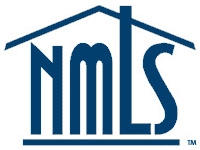WHAT IS A REVERSE MORTGAGE?
A reverse mortgage is a type of loan available to homeowners, typically older adults, that allows them to convert part of the equity in their home into cash. Unlike a traditional mortgage where you make monthly payments to the lender, with a reverse mortgage, the lender makes payments to you.
Here’s a breakdown of how it works:
- Eligibility: Generally, you need to be at least 62 years old, own your home outright or have a low mortgage balance, and live in the home as your primary residence.
- Loan Proceeds: The money you receive from a reverse mortgage can be given to you in various forms, including a lump sum, monthly payments, or a line of credit.
- Repayment: You don’t have to make monthly payments on the loan. Instead, the loan is repaid when you sell the home, move out, or pass away. At that point, the home is usually sold to pay off the loan, and any remaining equity goes to you or your heirs.
- Interest and Fees: Interest is charged on the amount borrowed, and it accrues over time. There are also fees associated with getting a reverse mortgage, including closing costs and servicing fees.
- Homeownership: You retain ownership of the home and are still responsible for property taxes, homeowners insurance, and maintenance. If you fail to keep up with these responsibilities, it could lead to foreclosure.
Reverse mortgages can be a useful financial tool for some people, but they also have risks and costs. It’s important to carefully consider your financial situation and possibly consult a financial advisor before deciding if a reverse mortgage is right for you.
What Does HECM mean?
HECM stands for Home Equity Conversion Mortgage. It’s a specific type of reverse mortgage insured by the Federal Housing Administration (FHA). Here’s a bit more detail about it:
- Insurance: Because HECMs are FHA-insured, they come with some additional protections for borrowers. If the borrower owes more than the home is worth when it’s sold, the FHA insurance covers the difference.
- Eligibility: To qualify for a HECM, you generally need to be at least 62 years old, live in the home as your primary residence, and have sufficient home equity. You also need to demonstrate the ability to maintain the property and meet tax and insurance obligations.
- Loan Terms: HECMs offer various payment options, including lump sum, monthly payments, or a line of credit. The amount you can borrow depends on your age, the interest rate, and the value of your home.
- Repayment: Like other reverse mortgages, HECM loans don’t require monthly payments. Instead, the loan is repaid when the homeowner sells the home, moves out, or passes away. At that point, the home is typically sold to repay the loan.
- Counseling Requirement: Before taking out a HECM, borrowers are required to undergo counseling from a HUD-approved counselor. This helps ensure that they fully understand the terms, costs, and implications of the reverse mortgage.
HECMs are designed to help older homeowners access their home equity while allowing them to remain in their homes, but, as with any financial product, it’s important to understand the details and implications before proceeding.
1. Age Requirement
- For HECMs: You must be at least 62 years old.
2. Home Ownership and Equity
- Ownership: You must own your home outright or have a low mortgage balance that can be paid off with the reverse mortgage proceeds. Suggested: You must be the current owner of your home at time of application.
- Equity: You need to have sufficient equity in your home. The amount you can borrow is based on your home’s value, your age, and current interest rates.
3. Primary Residence
- The home must be your primary residence. You need to live in the home for most of the year.
4. Financial Requirements
- Income and Credit: While you don’t need to have a specific income level or credit score to qualify for a reverse mortgage, you must demonstrate the ability to pay property taxes, homeowners insurance, and maintain the home.
- Counseling: For a Home Equity Conversion Mortgage (HECM), you are required to complete a counseling session with a HUD-approved counselor. This is to ensure you understand the terms and implications of the loan. Suggested: For any reverse mortgage product, …
5. Property Type
- The property must be a single-family home, a 2-4 unit home where you live in one of the units, an FHA-approved condominium, or a manufactured home that meets FHA requirements. Suggested: Acceptable property types eligible for a reverse mortgage include single-family home, 2-4 unit home where you live in one of the units, condominium, manufactured home, or townhouse.
6. Property Condition
- The home must be in good condition. If it needs significant repairs, you may need to address these issues before qualifying.
Additional Considerations:
- Mortgage and Property Taxes: You must be current on any existing mortgage and property taxes. If you’re behind on these payments, you may need to resolve those issues before qualifying.
- Ongoing Costs: You need to be able to cover ongoing costs such as property taxes, homeowners insurance, and maintenance. Failure to keep up with these responsibilities can lead to foreclosure.
If you meet these basic qualifications, the next step is to contact a reverse mortgage lender or counselor who can provide more specific guidance based on your individual situation and help you through the application process.
A few side notes are:
A reverse mortgage can be used to purchase a new home
All proceeds received from a reverse mortgage are tax-free
You remain on title/the owner of your home when you have a reverse mortgage; a lien is simply placed on title just like any other mortgage














